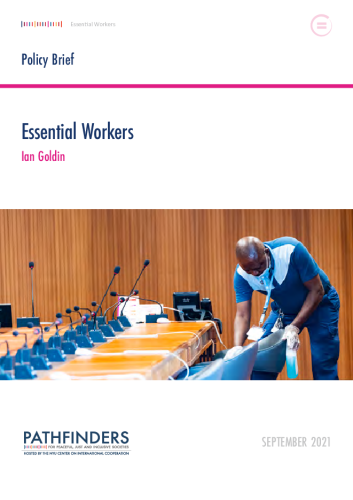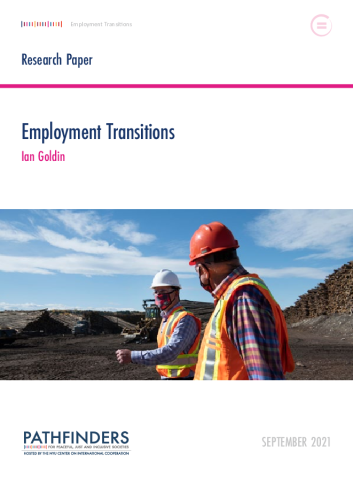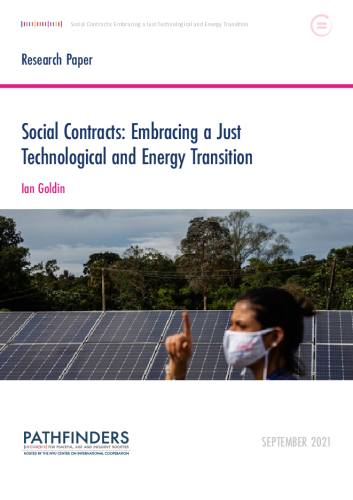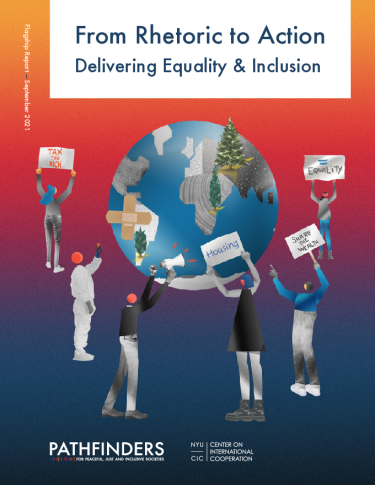The COVID-19 pandemic has revealed the extent to which we rely on essential workers. Around the world, health workers have been greeted by clapping, but this has not translated into improvements in their working conditions or pay. On the contrary, as COVID-19 cases and deaths have mounted, so too have the pressures and fatalities among health and other essential workers.
Member of the maintenance department staff cleans the armchairs, tables and microphones in a room in the UN headquarters in Geneva. (CC BY-NC 2.0)
A new deal for essential workers is not only the right thing to do on ethical and other grounds. It is in everyone’s self-interest. Without a new deal for essential workers, societies will not be able to respond to the intensifying cycle of crises that arise from an increasingly complex, interconnected, and unstable world. Whether it is a natural disaster, large-scale terrorism, geopolitical hostilities, or another pandemic, it is only a matter of time before society must again face down a crisis of unprecedented scale. To build resilience, we need a well-trained, deeply committed, and full complement of essential workers who will rise to the challenge. A new deal for these workers should be seen as a central tenet of creating more resilient economies, and an investment to reduce risk and future proof our societies.
In order to close the widening divide between the rhetoric and reality, author Ian Goldin argues in this paper that a new deal is required for essential workers and begins by defining essential workers and laying out the key facts around the prevailing socioeconomic background for such workers. It then draws on the experience of mitigating and compensating for risks in other socially necessary but hazardous occupations, such as the military, and uses this to define the contours of what a new deal for essential workers should look like.
[ Read the full policy brief: Essential Workers ]
This policy brief is part of the Pathfinders Grand Challenge on Inequality & Exclusion. More information about this initiative can be found here.




